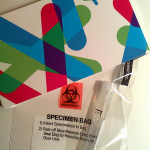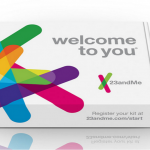23andMe brings its special skill set of analyzing genetic ancestry to the history of transatlantic slavery, the Middle Passage. While there are few surprises, it does make a convincing case that our genes and culture are deeply intertwined.
23andme
The genetic testing company released a new report detailing customer risk of developing Type 2 diabetes. It's better than a coin toss, but not a great screening test. It is medical "edu-tainment." But can it nudge us toward healthier decision making?
The FDA and 23andMe announced a newly approved report on consumer's individual ability to metabolize commonly used medications. What a treat! But the trick was that it has, at this point, no clinical value.
There are millions of people receiving information about their DNA, as it pertains to their ancestry and/or health. A new test, for three mutations in two genes associated with higher rates of certain cancers, recently received FDA approval. But when it comes to the "information provided," what does that really mean?
How about companies just telling it like it is – in all its forms? We need to do better than Theranos, and the hubris of 23andMe that warranted FDA intervention and sanctioning of the firm.
23andMe was selling home DNA testing kits that gave genetic information to consumers. Four years ago the Food and Drug Administration told the company to stop selling kits that perform disease detection. But now the agency has changed its tune.
Direct-to-consumer genetic testing provided by 23andme claims to provide relatively benign services to consumers, but is it okay to trust a company who's CEO is married to the founder of Google?





